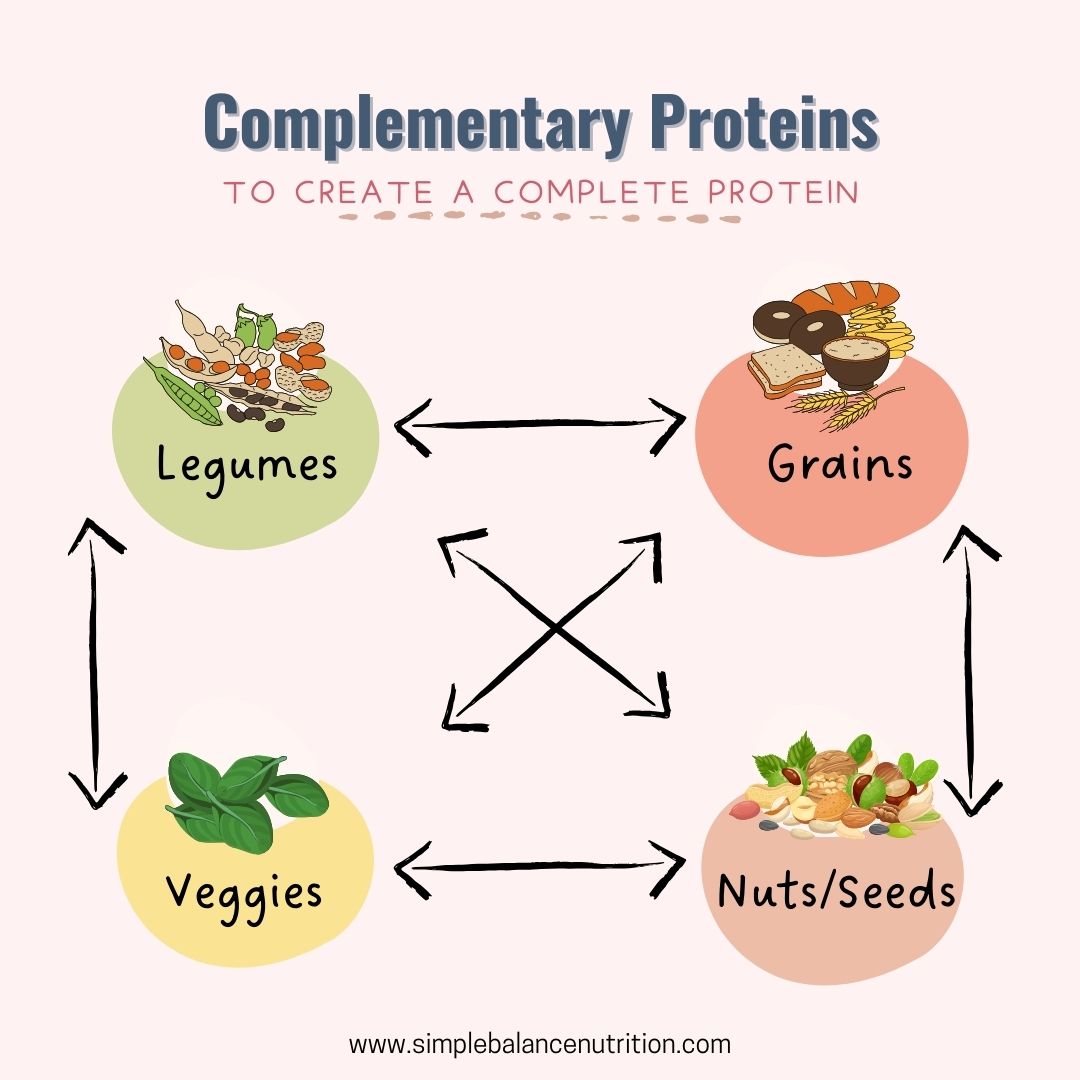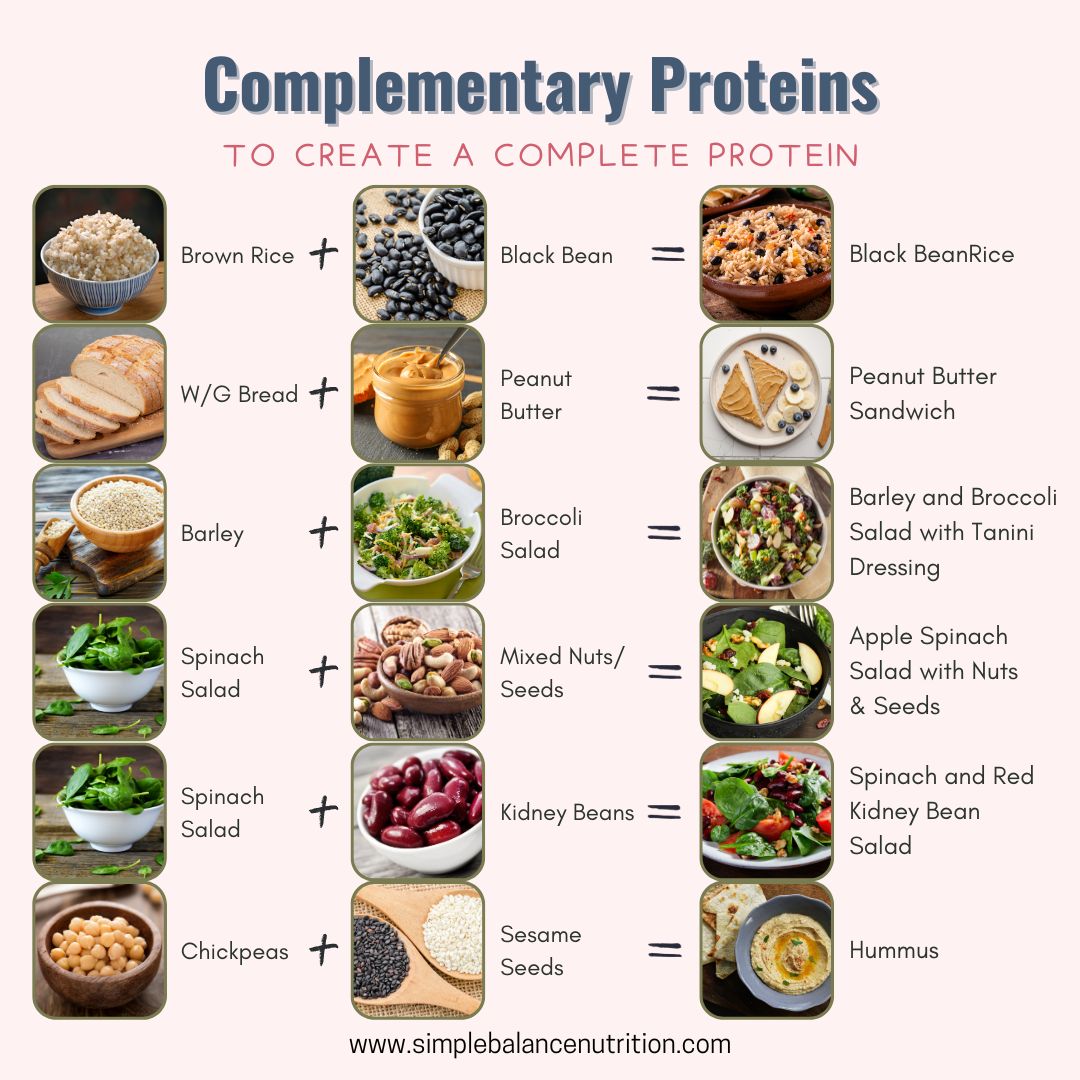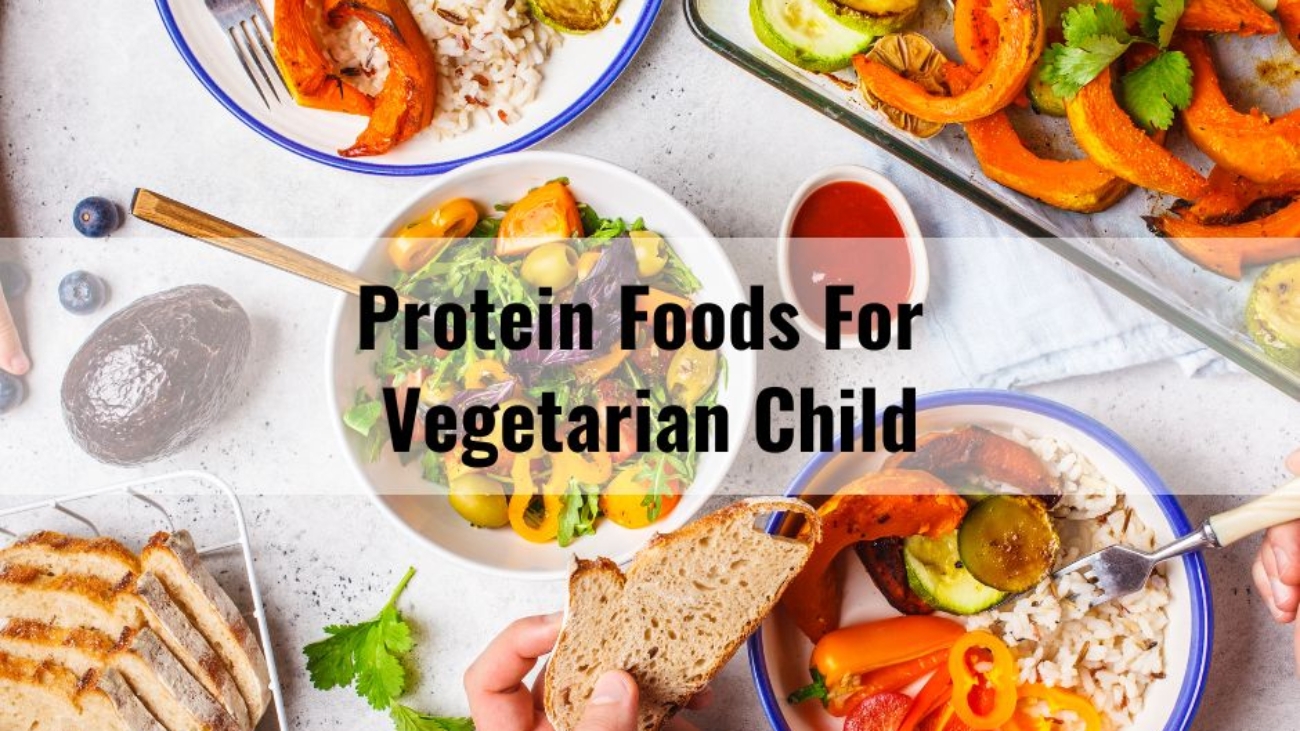If you’re dealing with a picky eater who doesn’t like meat, you might be concerned about their protein intake. There are plenty of nourishing non-meat protein sources to explore. Even if your family isn’t vegetarian, your child’s aversion to meat could come from various reasons. Perhaps they find meat difficult to chew or haven’t discovered a preferred way of eating it yet. It’s also possible that they’re making a connection between their love for animals and the food on their plate.
But here’s the good news! Meat is not the only source of protein! I’m here to break down the protein requirements for children and show you how to meet them, even if your children aren’t keen on meat. With a little creativity and exploration, you can ensure your child gets the protein they need for healthy growth and development.
WHAT IS PROTEIN? WHY DO WE NEED PROTEIN?
Protein is one of the three macronutrients that provide calories (or energy) in the diet, along with carbohydrates and fats. It’s essential for our health because it serves several important functions in the body.Firstly, protein plays a crucial role in building and repairing tissues, including muscle tissue. This makes it essential for supporting muscle growth and maintenance.Additionally, protein is involved in the production of hormones, enzymes, and other important molecules in the body. Hormones regulate various bodily functions, while enzymes facilitate chemical reactions that are necessary for metabolism and other physiological processes.Protein also plays a key role in supporting immune function, helping to defend the body against infections and illnesses.Every protein molecule is made up of smaller building blocks called amino acids.
20 different amino acids
There are 20 different amino acids that the body uses to build proteins, and each protein has a unique combination of these amino acids. Nine of these amino acids are considered ESSENTIAL because the body cannot produce them on its own, so they must be obtained from the diet. The remaining 11 amino acids are NONESSENTIAL because the body can synthesize them from other amino acids or compounds. For example, your body needs to consume enough of the essential amino acid phenylalanine for it to synthesize the nonessential amino acid tyrosine. Additionally, since your body can’t store essential amino acids, it’s crucial to continually provide your body with the protein it requires.<
9 essential amino acids:
- histidine
- isoleucine
- leucine
- lysine
- methionine
- phenylalanine
- threonine
- tryptophan
- valine
Non-essential amino acids:
- alanine
- arginine
- asparagine
- aspartic acid
- cystine
- glutamic acid
- glutamine
- glycine
- proline
- serine
- tyrosine
COMPLEMENTARY PROTEINS
Animal-based foods like meat, fish, poultry, eggs, and dairy are considered COMPLETE PROTEINS because they contain all nine essential amino acids that our bodies need. Plant proteins vary in their amino acid profiles, and different plant-based foods provide different essential amino acids.
Examples of plant-based complete protein foods include:
- Ancient grains, like quinoa and amaranth
- Buckwheat
- Chia seeds
- Hemp seeds
- Soy products (edamame, tofu, tempeh, miso, soymilk)
- Nutritional yeast
- Spirulina
Examples of plant-based incomplete protein foods include:

*Legumes – lentils, peas and beans.
Incomplete proteins can be paired together at meals or throughout the day to make a complete protein. This concept is often referred to as COMPLEMENTARY PROTEINS.
MEAL EXAMPLES

Grains + Legumes
- Black bean soup and rice
- Whole wheat bread and peanut butter
- Oatmeal top with peanut butter
- Pita bread with hummus
Nuts & Seeds + Legumes
- Hummus (chickpeas and sesame seed paste)
- Mixed roasted nuts, seeds, and peanuts
Veggies + Nuts & Seeds
- Spinach salad with nuts & seeds
By combining incomplete proteins you can ensure that you are getting all 9 amino acids. You don’t need to eat complementary proteins together at every meal. If you ate beans for lunch and then had some raw almonds for a snack later, you would be adding the methionine that you had missed out on during lunch.
As long as you get a variety of protein sources throughout the day can ensure you’re getting all the essential amino acids your body needs.
HOW MUCH PROTEIN DO CHILDREN NEED?
Babies from birth to 6 months:
At this stage, babies need at least 8 grams of protein per day. Babies are in big-time growth mode and require sufficient protein to meet their body’s needs. From 0-6 months, babies get all of the protein they need from breast milk or formula.
Babies from 7 to 12 months:
At this age, babies require at least 10 grams of protein per day. It can come from a combination of breastmilk and/or formula and the solid foods that they are eating. If it sometimes feels like more food ends up in the highchair or on the floor than it does in baby’s mouth, that’s normal! Rest assured that they are still getting protein from breastmilk/formula, and some from food, too.
Toddlers from 1 to 3 years:
As your child gets bigger, protein requirements increase. At this stage, toddlers need at least 12 grams of protein per day. Of course, that’s just a minimum – they can get more than 13 grams! If they are not big eaters, don’t worry: 13 grams of protein equals just 1 egg and a small serving of Greek yogurt. Or it could be a couple of tablespoons of meat, some milk, and a small piece of cheese. It doesn’t take much to meet their needs.
Children age 4 to 6 years:
At this stage, children require at least 16 grams of protein per day. As with toddlers, it’s fine if they get more than this amount. Serve a variety of protein-rich foods at meals and snacks.
BEST PROTEIN FOR CHILDREN WHO REFUSE TO EAT MEAT
For children who want to be a vegetarian, or refuse to eat meat and other animal sources of protein, I often ask them “Are you getting enough protein in your diet?”. Although meat often comes to mind first as a good source of protein, there are other foods that offer plenty of protein as well. The trick is to include protein-rich plant foods at EVERY MEAL AND SNACK can help meet their nutritional needs.
VEGETARIAN PROTEIN
Here’s a list of vegetarian protein sources that you can incorporate into your family’s diet:
- Beans (black beans, pinto beans, chickpeas, kidney beans, red beans)
- Lentils
- Peas & Split peas
- Nuts & nut butter (almonds, walnuts, peanut)
- Seeds & seeds butter (hemp seeds, chia seeds, sunflower seeds, pumpkin seeds)
- Hummus
- Soy (soy milk, edamame beans, tempeh, tofu)
- Dairy (milk, cheese, cottage cheese, kefir, Greek yogurt)
- Eggs
- Grains (quinoa, amaranth, oats, barley, bulgur wheat, brown rice, whole wheat bread and pasta)
- Protein Powder
- Mycoprotein (Quorn, veggie burgers)
- Seitan
- Spirulina
- Nutritional yeast
- Vegetables (spinach, broccoli, Brussels sprouts, asparagus, and kale)
VEGAN PROTEIN
- Beans (black beans, pinto beans, chickpeas, kidney beans, red beans)
- Lentils
- Peas & Split peas
- Nuts & nut butter (almonds, walnuts, peanut)
- Seeds & seeds butter (hemp seeds, chia seeds, sunflower seeds, pumpkin seeds)
- Hummus
- Soy (soy milk, edamame beans, tempeh, tofu)
- Dairy free milk products (plant-based)
- Grains (quinoa, amaranth, oats, barley, bulgur wheat, brown rice, whole wheat bread and pasta)
- Protein Powder
- Mycoprotein (Quorn, veggie burgers)
- Seitan
- Spirulina
- Nutritional yeast
- Vegetables (spinach, broccoli, Brussels sprouts, asparagus, and kale)
Additionally, when opting for vegan dairy alternatives like cheese, yogurt, milk, butter and ice cream, it’s essential to check labels for protein content as it can vary widely among products.
NUTRIENTS THAT MAY BE DEFICIENT IN A VEGETARIAN DIET
It’s important for vegetarians or vegans to be mindful of potential nutrient deficiencies in their diet. Here are some nutrients that may be deficient in a vegetarian diet:
Calcium
Calcium is an important mineral that’s essential for bone health, muscle function, and wound healing. While dairy products are well-known sources of calcium, there are plenty of plant-based options available as well. Here are some vegetarian sources of calcium:
- Cheese
- Yogurt
- Milk (both dairy and fortified plant-based options like almond milk, soy milk, or oat milk)
- Tofu (especially tofu processed with calcium sulfate)
- Beans and pulses (such as chickpeas, black beans, and lentils)
- Fish canned with bones (such as sardines or salmon)
- Wholemeal bread
- Fortified cereals
- Dark green leafy vegetables (including broccoli, kale, collard greens, and bok choy)
Vitamin D
Vitamin D is an essential nutrient that contributes to healthy bones and also helps to control the amount of calcium in our blood. While oily fish and eggs are notable dietary sources of vitamin D, obtaining sufficient amounts solely from food can be challenging.
Also, in regions with hot climates like Malaysia, it can be challenging to safely expose babies/children to sunlight due to the risk of overheating and sunburn.
One option is to provide vitamin D supplements, as recommended by healthcare professionals. Vitamin D drops or supplements specifically formulated for infants are available and can help meet their vitamin D needs.
Iron
Iron plays a vital role in various bodily functions, including the production of hemoglobin for oxygen transport and supporting a healthy immune system. It’s important to note the difference between heme iron, primarily found in animal sources, and non-heme iron, found in plant-based foods. Since non-heme iron is less readily absorbed by the body, vegetarians may need to consume slightly more iron-rich foods to meet their daily requirements.
Including a variety of plant-based iron sources in meals is key. Some examples of iron-rich vegetarian foods include beans, lentils, tofu, tempeh, nuts, seeds, fortified cereals, and dark leafy greens like spinach and kale. Combining these foods with sources of vitamin C, such as citrus fruits, strawberries, tomatoes, or bell peppers, can enhance iron absorption.
Zinc
Zinc is another mineral with important functions in the body including cell and enzyme production, as well as wound healing. However, phytates found in plant foods like whole grains and beans can inhibit the absorption of zinc. Therefore, it’s essential to include adequate sources of zinc-containing foods in the diet. Here are some good sources of zinc: beans, whole grains, nuts & seeds, fermented soy (tempeh and miso).
Vitamin B12
B12 needs for the formation of healthy red blood cells, cell division, and maintaining nerve structure and function. It is primarily found in animal products, individuals following a vegetarian or vegan diet need to pay special attention to their B12 intake. If dairy and eggs are part of a child’s vegetarian diet, they are likely to obtain sufficient B12 from these sources. However, for those who exclude dairy and eggs, fortified cereals (Cheerios) and plant-based milks can serve as alternative sources of vitamin B12. Additionally, considering a B12 supplement for children following a vegetarian or vegan diet is a wise option to ensure they meet their nutritional needs.
Omega-3 Fatty Acids
Ensuring an adequate intake of omega-3 fatty acids is essential for overall health, including heart health, brain function, and inflammation regulation. While oily fish is a significant source of EPA and DHA omega-3 fatty acids, vegetarians can still obtain these nutrients from various plant-based sources.
Walnuts, flaxseeds (linseed), hemp seeds, chia seeds, and soybeans are excellent vegetarian sources of alpha-linolenic acid (ALA), a precursor to EPA and DHA. Additionally, oils such as hemp, rapeseed (canola), and flaxseed oils contain ALA and can be incorporated into cooking or salad dressings.
Omega-3 enriched foods, including eggs and certain dairy alternatives like milk, yogurt, bread, and spreads, can also provide a convenient source of omega-3 fatty acids for vegetarians. When choosing these products, look for labels indicating omega-3 enrichment to ensure you’re getting the desired nutrients.
Iodine
Iodine is an essential micronutrient that play a role in helping our bodies to make thyroid hormones. It can be found in dairy products, eggs and white fish and shell fish. If your children do not consume, it’s essential to consider fortified sources of iodine, such as milk alternatives or supplements.
CAN MY CHILD FOLLOW A VEGAN DIET?
Ensuring that vegetarian and vegan children receive adequate nutrition for healthy growth and development is crucial. While studies have shown that the growth of vegetarian children is comparable to meat-eating children, vegan children may sometimes be slightly shorter and lighter, though still within normal ranges.
A vegan diet excludes all animal products, which can increase the risk of deficiencies in certain nutrients, including calcium, vitamin D, iron, zinc, omega-3 fats, vitamin B12 and iodine. Vegan diets can sometimes be bulky and high in fiber, which may fill up toddlers’ stomachs without providing enough calories. Including energy and nutrient-dense foods like avocados, vegetable oils, seeds, nut butters, tofu, and pulses can help increase the nutrient and energy density of their diets.
WHAT TO OFFER VEGETARIAN CHILDREN?
For vegetarian children, offering full-fat dairy products such as milk, yogurt, and cheese, as well as eggs, can provide nutrient-dense sources of protein, fats, and energy. It’s essential to ensure a balanced and varied diet for children following vegetarian or vegan lifestyles to meet their nutritional needs for growth and development.
While a vegetarian or vegan diet may pose challenges in meeting nutritional needs, careful planning can ensure that it remains balanced and provides all the necessary nutrients for your child’s health and well-being. With attention to fortified foods and diverse plant-based sources of essential nutrients, a vegan diet can be nutritious and suitable for children.
At the same time, I believe the emotional and social aspects of a vegan diet are crucial considerations, especially for children and teenagers. It’s essential to support your child’s dietary choices while also being mindful of their emotional well-being and ensuring they have a positive relationship with food. Open communication within the family about the reasons behind their dietary preferences and strategies for navigating social situations can help foster a healthy approach to veganism. If there are concerns about eating disorders or challenges with social interactions related to the diet, seeking support from a healthcare professional or counselor may be beneficial.
DO MY CHILDREN NEED PROTEIN POWDER?
NO, typically children do not need protein powder. Protein powders often contain additional ingredients that are unnecessary for children, including excess protein. Children generally obtain sufficient protein from their regular diet.
While it’s okay for children to consume a smoothie made with protein powder OCCASIONALLY, it’s not necessary to specifically incorporate protein powder into their diet. Regular food sources usually provide an adequate amount of protein for children’s nutritional needs.
If you are living with a picky eater, why not join PEACEFUL MEALTIMES.

BOTTOM LINE
Well-planned vegetarian diets can be nutritious and provide all the necessary nutrients for good health at every stage of life. However, careful planning is essential to ensure that all nutrient needs are met.
With the help of a dietitian, parents can create balanced and diverse vegetarian meal plans that meet their child’s nutritional needs and preferences. By working together, parents can ensure that their children thrive on a vegetarian diet and enjoy optimal health and well-being.
A multivitamin may be necessary to ensure they are getting essential nutrients. Always prioritize your child’s health and well-being by seeking professional advice when making dietary choices.
What are your favourite plant-based protein foods?

